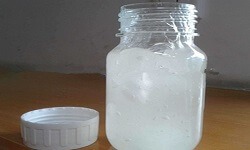
IUPAC Name
Polyoxyethylene Lauryl Ether
Cas Number
9002-92-0
HS Code
3402.19.00
Formula
C₁₂H₂₅(OCH₂CH₂)ₙOH
Appearance
Clear, colorless to light yellow viscous liquid
Common Names
Brij® L23, Brij 35, Ethoxylated lauryl alcohol, Polyethylene glycol dodecyl ether, Polyoxyethylene (23) lauryl ether
Packaging
85 @ 180 kg Steel Drum, 15.3 MT
Brief Overview
Polyoxyethylene Lauryl Ether is a chemical compound that belongs to the class of non-ionic surfactants. It is commonly used in various personal care and household products as a detergent, emulsifier, and foaming agent due to its ability to lower the surface tension between liquids and solids. This compound is derived from lauryl alcohol and ethylene oxide, where the number of ethylene oxide units determines the specific variant (e.g., Polyoxyethylene (2) Lauryl Ether, Polyoxyethylene (5) Lauryl Ether, etc.).
As with any chemical ingredient, it is essential to use Polyoxyethylene Lauryl Ether as directed and take appropriate precautions to avoid any adverse reactions or irritations, especially for individuals with sensitive skin or allergies.
Manufacturing Process
The method for producing a Polyoxyethylene Lauryl Ether, which comprises: a sulfation step wherein an ethylene oxide addition product of an alkyl alcohol having 8-22 carbon atoms is reacted with an SO3-containing gas, thereby obtaining a sulfated product of the ethylene oxide addition product; and a neutralization step wherein the sulfated product is neutralized, thereby obtaining a sulfate. The ethylene oxide addition product contains from 0.01% by mass to 1% by mass (inclusive) of an alkali metal hydroxide relative to the total mass of the ethylene oxide addition product.